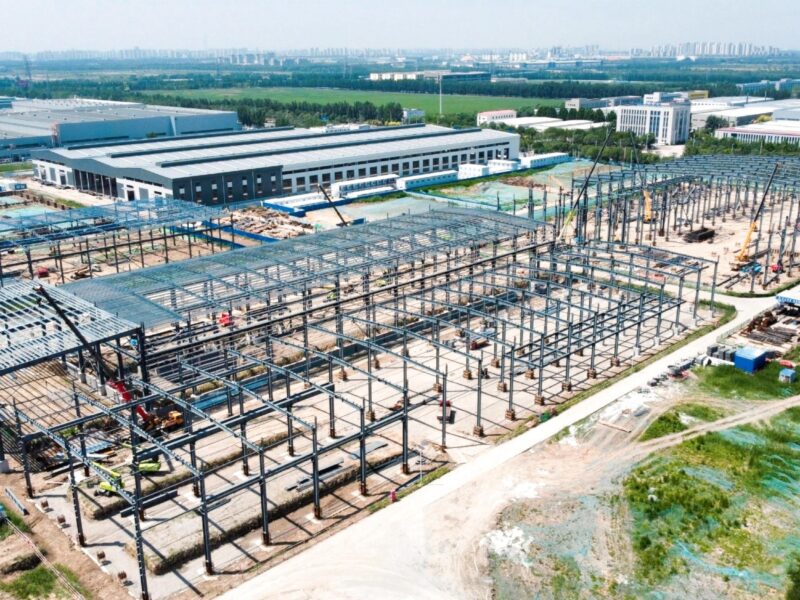
Modular Pig Barns: Efficient, Hygienic, and Scalable Housing for Modern Swine Production
The swine industry is rapidly modernizing, with farms seeking higher productivity, better biosecurity, and operational efficiency. Traditional pig housing can be costly, time-consuming to build, and difficult to expand or adapt to changing herd sizes.
Modular pig barns provide a modern solution for commercial swine operations. Prefabricated steel frames, insulated panels, and climate-controlled systems allow for fast installation, superior hygiene, and flexible farm management.
These barns are designed to meet the needs of professional pig farmers and agribusiness investors, supporting animal welfare and operational scalability.
Why Modular Pig Barns Are Ideal
Modular pig barns combine prefabrication, durability, and efficiency:
- Quick Assembly: Prefabricated components reduce construction time.
- Durable Materials: Steel frames resist corrosion, pests, and weather conditions.
- Flexible Design: Modular layouts allow easy expansion or reconfiguration.
- Enhanced Hygiene: Smooth surfaces and easy-clean panels reduce disease risk.
These features make modular pig barns a preferred choice for modern B2B swine operations.
Key Advantages of Modular Pig Barns
- Rapid Construction
Prefabricated components can be assembled quickly, minimizing downtime and enabling faster production. - Optimal Animal Welfare
Climate-controlled systems maintain proper temperature and humidity, reducing stress and supporting healthy growth. - Scalability
Modular design allows farms to expand or adapt sections based on herd size or operational needs. - Hygienic Design
Non-porous wall and floor materials enable easy cleaning and disinfection, lowering biosecurity risks. - Energy Efficiency
Insulated panels and natural ventilation reduce energy costs for heating, cooling, and ventilation. - Cost Savings
Prefabrication reduces labor, material waste, and long-term maintenance costs.
Applications Across Swine Operations
Modular pig barns are versatile and can be customized for various production stages:
- Breeding Units: Controlled environments for sows and piglets.
- Nurseries: Safe, climate-controlled housing for young pigs.
- Fattening Houses: Spacious pens designed for growth efficiency.
- Quarantine and Isolation Units: Separate sections to prevent disease spread.
- Feed and Storage Areas: Integrated spaces for feed and equipment.
Design Considerations for B2B Clients
When planning modular pig barns, investors should focus on:
- Ventilation Systems: To reduce ammonia buildup and maintain air quality.
- Flooring and Drainage: Non-slip, easy-clean floors for hygiene and safety.
- Climate Control: Maintain consistent temperatures year-round.
- Automation Integration: Space for feeding, watering, and environmental monitoring systems.
- Biosecurity Measures: Controlled access and sanitation zones to prevent disease outbreaks.
Case Studies
- Large-Scale Swine Farm (China):
Modular pig barns enabled rapid expansion, reducing construction time by 40% and improving feed conversion efficiency. - Commercial Pig Farm (USA):
Climate-controlled modular barns improved pig health and reduced veterinary costs by 25%. - Family Farm (Vietnam):
Prefabricated modular units allowed quick setup in remote locations while maintaining biosecurity standards.
Why B2B Clients Choose Modular Pig Barns
For investors and swine operators, modular pig barns provide:
- Rapid deployment and faster ROI
- High hygiene and animal welfare standards
- Flexible layouts for future expansion
- Reduced operational and maintenance costs
- Compatibility with modern farming automation
- Compliance with international swine farming standards
These advantages make modular pig barns a practical, cost-effective, and future-proof choice for modern swine operations.
Conclusion
Modular pig barns are transforming swine farming by combining efficiency, hygiene, and flexibility. They allow farms to scale operations quickly while ensuring optimal animal welfare and cost savings.
For B2B clients and commercial pig farms, investing in modular pig barns means faster setup, cleaner environments, and long-term operational efficiency — a strategic foundation for success in the modern swine industry.
